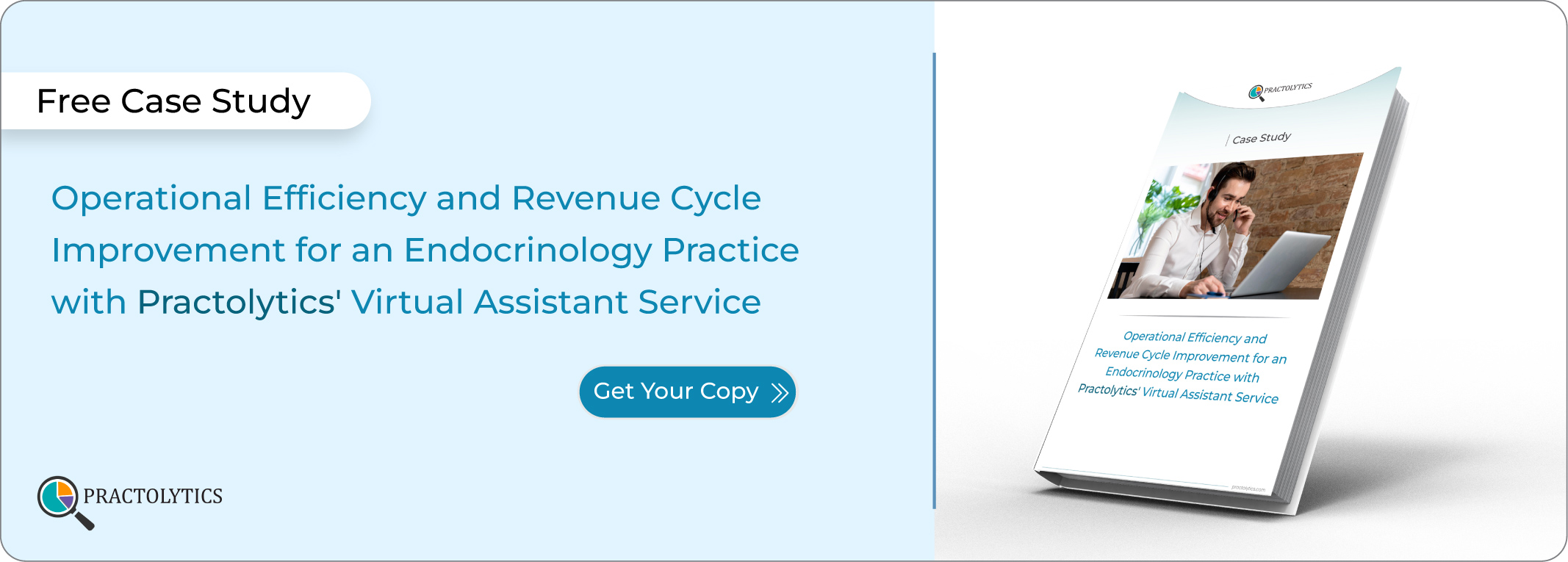5 Signs that Your Healthcare Practice Needs a Virtual Assistant
Is your clinic feeling chaotic or overworked? Many providers find the day starts with patients and ends in paperwork. When administrative tasks pile up, nearly half of physicians report burnout. Here are 5 signs that your healthcare practice needs a virtual assistant could be the extra help your practice needs – along with examples of how a VA can ease the load and let you focus on patients.
Table of Contents
Sign 1: Your Staff Are Overwhelmed by Admin Work
If your front desk or office staff seem perpetually swamped, that’s a red flag. Studies show front-desk teams can handle dozens or even hundreds of calls a dayThe phone never stops ringing, paperwork is piled high, and your team skips breaks or works late just to keep up. Common clues include long hold times for patients, overflowing inboxes or charts, and staff reporting high stress.
A healthcare virtual assistant can shoulder much of this burden. VAs are trained to answer patient calls, manage appointment bookings, and handle routine authorizations. For example, one orthopedics practice found a VA “helped manage” the constant stream of calls—“calls answered, emails addressed, and authorizations processed—while ensuring patient care. By delegating these tasks, your staff can stop triaging calls and paperwork and get back to caring for patients instead of juggling admin.
Sign 2: Scheduling and Patient Flow Are Chaotic
Is your appointment calendar a mess of double bookings, canceled slots, and long patient wait times? That’s another clear sign. When scheduling is out of control, patients either wait too long for care or show up at odd times, frustrating everyone. Some clinics have seen patient wait lists shrink from months to weeks once a VA automates scheduling tasks Others report cutting missed appointments by 25% after adding reminder calls and rescheduling support
Look out for warning signs like frequent last-minute cancellations, patients complaining of long waits, or staff constantly shuffling appointments. A virtual assistant can tame this chaos. By sending appointment reminders, confirming bookings, and efficiently filling gaps, a VA keeps your schedule running smoothlyThey can also handle evening or weekend calls and reschedule no-shows. The result? A tidier calendar, fewer empty slots, and happier patients who get seen on time.
Sign 3: Billing and Paperwork Are Piling Up
Do you arrive early or stay late to tackle an ever-growing stack of claim forms and charts? If insurance claims are unpaid or staff are rushing billing entries, your revenue and morale both suffer. Key symptoms include a backlog of unsigned notes, unpaid or incorrectly coded claims, and patient records that never get updated.
A trained virtual assistant can methodically chip away at this backlog. Virtual assistants can verify insurance eligibility, submit and track claims, update electronic records, and enter data accurately. By doing so, they “eliminate revenue leakage” from errors or delays. In practice, this means claims get paid faster, reimbursements arrive on time, and your finances improve. It also means your clinical team can finally complete charting. (In other words, the “mountain-high stacks” of paperwork start shrinking.)
Sign 4: Patients Are Getting Lost in the Shuffle
Are you hearing that patient phone messages go unanswered or follow-ups never happen? Any sign that patients feel ignored is a red flag for care quality. Today’s patients expect timely communication—test results delivered, prescription refills managed, and post-visit check-ins handled. If your office can’t keep up (for example, calls or emails sit unreturned or no one calls to check on a patient’s progress), patient satisfaction will drop.
Virtual assistants can dramatically improve patient communication. They handle tasks like sending visit reminders, making follow-up calls, and distributing satisfaction surveys—even beyond regular office hours. With a VA on board, no patient falls through the cracks. Automated reminders and follow-ups mean questions get answered and preventive care isn’t missed. Many clinic managers note that adding a VA “streamlines workflows and improves patient satisfaction”. In short, patients get the attention they need, and your practice’s reputation and outcomes get a boost.
Sign 5: Working Off the Clock
Finally, if you or your team can’t leave work behind at the end of the day, take it seriously. Do you find yourself checking clinic emails on vacation or finishing charts on weekends? Are you dreading Monday before the week even starts? Chronic off-hours work is one of the clearest warning signs: nearly 50% of providers report feeling burned out—largely due to clerical overload If evenings and weekends are spent catching up on patient notes or billing, something has to change.
Hiring a virtual assistant lets you reclaim your personal time. By offloading routine tasks to a remote VA, you avoid being tethered to the office. You also save on overhead—companies note that virtual assistants can cut staffing costs dramatically (up to ~78% savings on payroll and benefits) In practice, that means when 5 PM rolls around, you can truly step away. With admin work handled by a VA, you’ll relax knowing scheduling, billing, and patient follow-ups are being taken care of – and wake up Monday refreshed, not stressed.
Hiring a VA lets you and your team work smarter, not harder. Instead of worrying about work 24/7, you focus on providing care and maybe even enjoy life outside the office again.
Conclusion
If many of the above scenarios hit home, it’s time to hire a virtual assistant. Bringing on a skilled VA can turn those red flags into a smooth-running practice: tidier schedules, fewer no-shows, up-to-date billing, and happier patients. It’s no surprise modern clinics see big improvements—one analysis reported a 40% reduction in admin hours after adding virtual support
When you’re ready to get started, consider partnering with specialists. Firms like Practolytics connect healthcare clinics with experienced medical VAs who understand your world. Delegating admin duties to a trained assistant gives your clinical team space to do what they do best: practice medicine. As Practolytics experts note, many managers report that virtual assistants “streamline workflows and improve patient satisfaction”—freeing ”everyone to focus on patients.
Practolytics specializes in reaching out to healthcare practices with skilled virtual assistants and support staff, helping you improve efficiency without the hassle of hiring.
Read More – From Chaos to Efficiency: A Small Practice’s Journey with a Virtual Assistant
Talk to Medical Billing Expert Today — Get a Free Demo Now!





